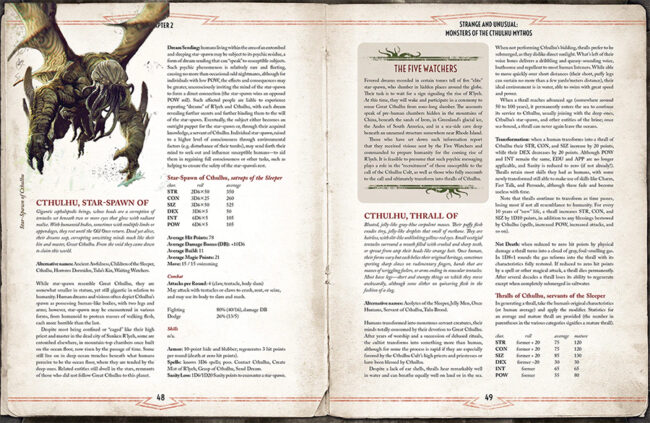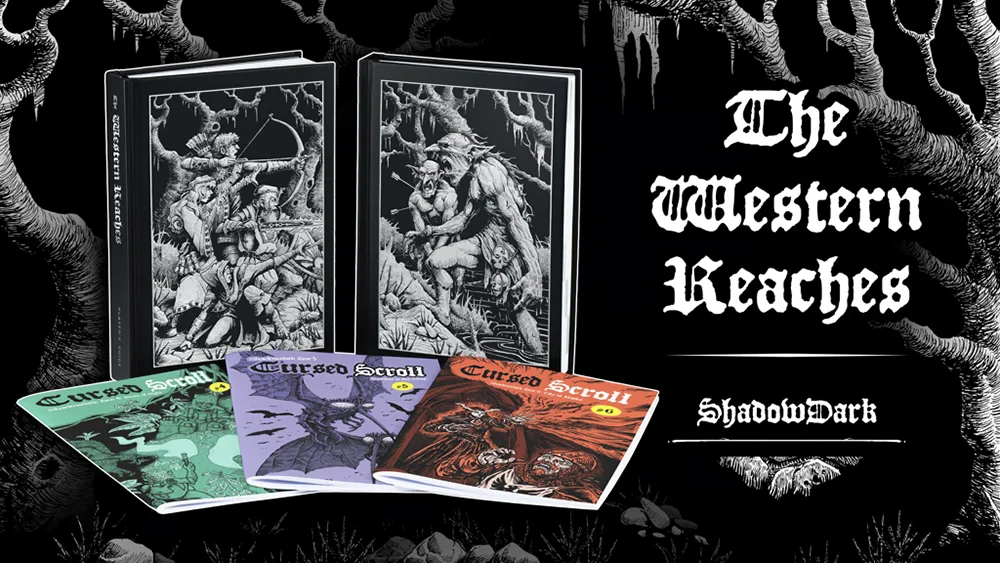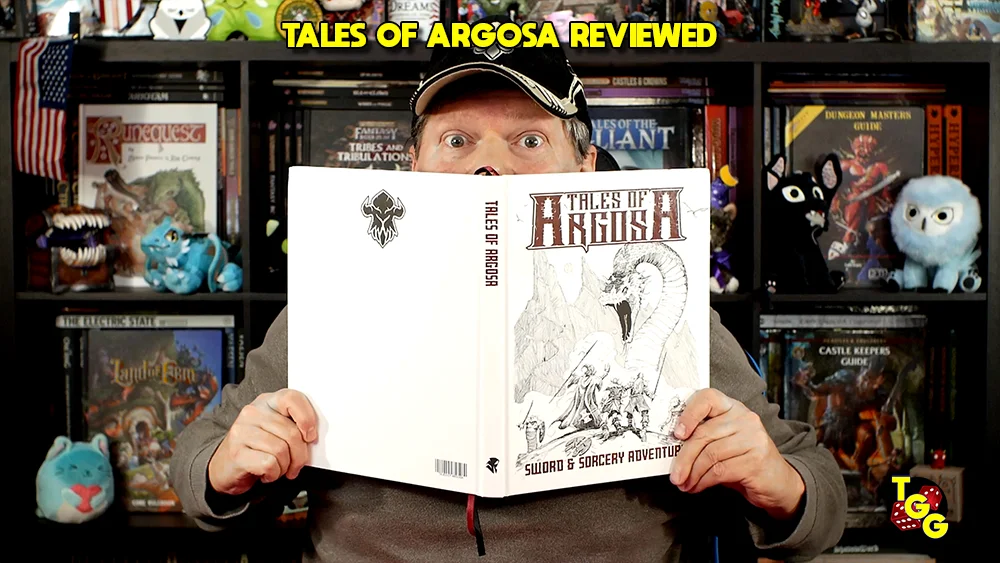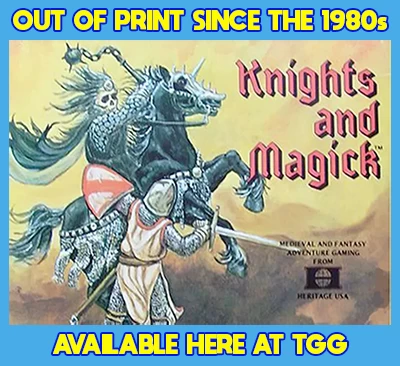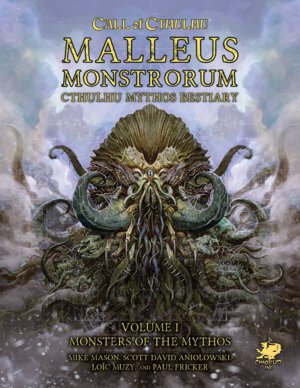
Publisher: Chaosium Inc
Authors: Mike Mason, Scott David Aniolowski, with Paul Fricker
Artist: Loïc Muzy
Year: 2020
Genre: Lovecraftian bestiary for Call of Cthulhu
Pages: Two volumes, 480 pages total
Price: $89.99 for the physical two volume slipcase or $39.99 in PDF at DriveThruRPG
When Chaosium released S. Petersen’s Field Guide to Lovecraftian Horrors, they crafted a wonderfully weird, in-universe guidebook to many of the threats endemic to a campaign in Lovecraft’s mythos. With darkly beautiful illustrations from Loic Muzy, Mariusz Gandzel, and Claire Delepee, and a reference list any Call of Cthulhu enthusiast will be grateful isn’t real, Petersen’s Field Guide was a standout addition to the seventh-edition line.
The only problem was that it was too short.
At fifty-three entities, the Field Guide was a tantalizing blend of world-building supplement and bestiary — if cross-referenced with the main Keeper’s Handbook, one that wet the appetite of many for an updated monster manual.
With Malleus Monstorum, Chaosium delivers a jam-packed two volume reference that blends flavor and mechanics to offer Keepers a detailed accounting of Mythos-based threats.
The first volume deals in monsters, offering a detailed accounting of existing threats while also providing guidance on how to create your own. This latter information may be of extra interest as it expands on design guidance in a way that standard Keeper’s Handbook does not. In addition to guiding questions, this section also provides a list of spells commonly available to monsters, how to develop a monster’s stats, and how to determine scale and characteristics. The book also features suggestions for creating monsters quickly or through random generation, as well as a summary of the relevant tables.
Each monster is given a flavor-text description, a listing of its alternate names, an overview of background information, and a detailed account of powers, characteristics, hit points, build, skills, spells, and sanity loss. Jam-packed with detail, Volume One makes it easy to find and include story-appropriate threats — or, if you prefer threats to build a story around.
The first volume also includes monsters from folklore, such as the Jersey Devil and the Yeti, as well as standard beasts, such as alligators, bats, and moose. The decision to include golems is, perhaps, controversial. Though their Jewish origin is kept intact, their role as protector is not — disappointing, given the otherwise excellent, culturally-entrenched description.
The second volume turns its attention to the deities of the Mythos. Like the first volume, instructions are included for creating your own deity, as well as a detailed accounting of those that appear in Lovecraft’s original works. The creation section is less beefy than its counterpart in the Monsters volume, but given that doing battle with literal gods usually does not end well for player characters, that’s hardly a surprise.
Like the Monsters volume, entries in the Deities book include a quoted description, other names and then move onto the bulk of the detail. In this case, that includes key background information, cults that worship it, possible blessings, encounters to serve as plot hooks, perception, sanity loss, spells, powers, and combat information.
Also included in the PDF are printable versions of the Monster Master Sheet and Minion Master Sheet. These allow Keepers to copy down the relevant information from the text, section by section, so games flow uninterrupted. With the sheer volume of information contained in each entry, these sheets are a welcome addition to the Malleus Monstorum experience.
Both volumes are cleanly laid out, featuring a design strongly reminiscent of The Grand Grimoire of Cthulhu Mythos Magic. Full color illustrations scattered throughout both volumes of the text provide additional detail and help Keepers better describe —or choose what to describe—the given threat. Though the PDF is beautiful, its sheer size means navigation can be daunting. This is somewhat negated by the hot-linked indices and the master list of deities in the second volume. When available, Malleus Monstorum’s print edition will no doubt be a (pricey) delight.
Malleus Monstorum isn’t essential for Keepers; the included bestiary in the Keeper’s Handbook is perfectly serviceable, especially when flavored with Petersen’s Field Guide. However, for those who are truly invested in bringing new threats to the table with a full and robust understanding, Malleus Monstorum is an absolute gem.
[rwp-review id=”0″]


